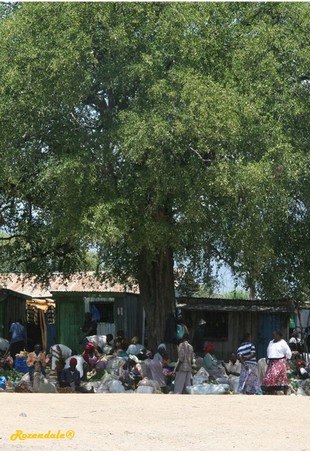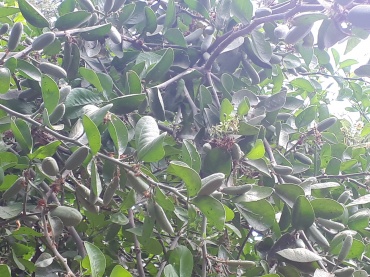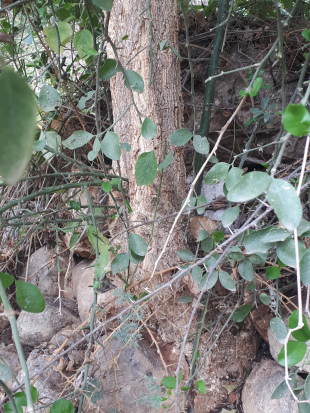Sidebar
Balanites aegyptiaca - Balanites
Description and Uses
Balanites aegyptiaca (Balanites) is a tropical tree from East Africa . It is mainly grown for its oil crops , which have a long shelf life. The crop is harvested by ground gathering. It starts flowering after 5 - 8 years. The yield will be ?, but in its top season there will be a yield of ?. Other crop types include; fodder, ornamental, fruit, timber, gum resin, oil, The fruit is used as minor food . The root is used as " anti-biotica, malaria treatment, anti-cancer tumor, " with balanitin (? - ?) as its significant phytochemical. There is Balanites oil extracted by cold pressing from the tree's seed/nut yielding 45% - 46.1% oil. The tree's wood is called Balanites and has a density of 700 - 800 kg/m³. Regarding firewood production the tree's growing speed is moderate, it's energetic value is 4600 ckal/kg and the wood's drying speed is fast. After 60 years the tree can be totally removed as it reached its commercial and ecological goal. Balanites aegyptiaca has a lifespan of 120 years.
Environmental limitations
The tree is
10 meters tall with a crown of
7 meters wide. The
tree prefers a planting distance of
600 cm and a row distance of
600 cm. It is
moderate fast growing and
intolerant to shade.
Balanites aegyptiaca has a
deep root-system and it has symbiotic associations with the
Glomus intraradices fungi
(endo-mycorrhiza). It is
not able to fix nitrogen with
"any bacteria. The name(s) or string of bacteria include(s)
"not applicable ". The
tree's flower-morphology is
hermaphroditic and is pollinated by
insects.
Balanites aegyptiaca is
evergreen and
not allelopathic and has
thorns.
Balanites aegyptiaca thrives in an altitude of
0 to
2000 meters above sea-level
(tropical). The minimum temperature is
-1°C; optimally between
20 -
30°C. The optimal rainfall is
850
mm/year. Without irrigation the annual rainfall should be between
250 -
1200mm (L/m²). The optimal soil-pH is between
6.0 -
9.0 in a soil texture of
sand. To salt it is
intolerant to wind
a bit tolerant and to fire
tolerant.
Pests and Diseases
Balanites aegyptiaca is susceptible to the following pests: Nomadacris septemfasciata . And it's susceptible to the following diseases: Leaf spot , , .
Seed Propagation
Seeds are orthodox and can be stored for 15 months. There are approximative 1000 seeds/kg. The seeds can be propagated as followed:
- (1) Store harvested seeds dry at room temperature
- (2) Soak the seeds overnight in warm water before sowing.
- (3) press the seeds twice its size in the soil soil.
| Vertical Photo [+] |

|
Kerio Valley, Kenya - 2014-09-12 |
| Seeds Photo [+] [Buy Seeds] |

|
Rijs, Netherlands - 2019-12-10 |
| Detail Photo [+] [Mother Plants] |

|
Tel Aviv-Yafo, Israel - 2018-09-21 |
| Seedling Photo [+] [Buy Seedlings] |

|
Roodeplaat, South Africa - 2019-12-11 |
| Stem Photo [+] |

|
Tel Aviv-Yafo, Israel - 2018-09-21 |
| [Crops Photos] [+] [Buy Crops] |

|
Holon, Israel - 2019-12-12 |
| * |
- Botanical Taxonomy - |
|
|---|---|
|
Clade
[+] Order [+] Family [+] Sub-family [+] Species Common name |
Rosids Zygophyllales Zygophyllaceae Tribuloideae Balanites aegyptiaca Balanites |

|
|---|
| Parameter | Rating |
|---|---|
|
Fruit Nut Apiculture Fodder Medicinal Oil Timber Grow-speed Firewood |
|
See also |
|
|---|---|